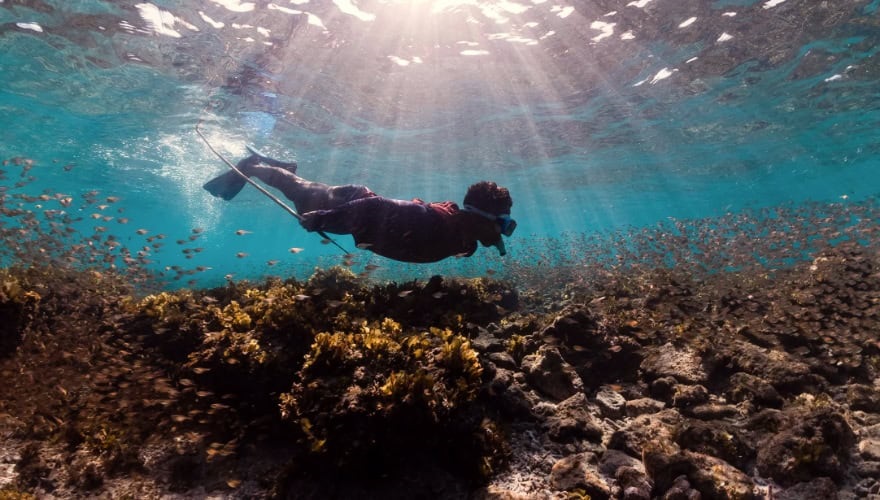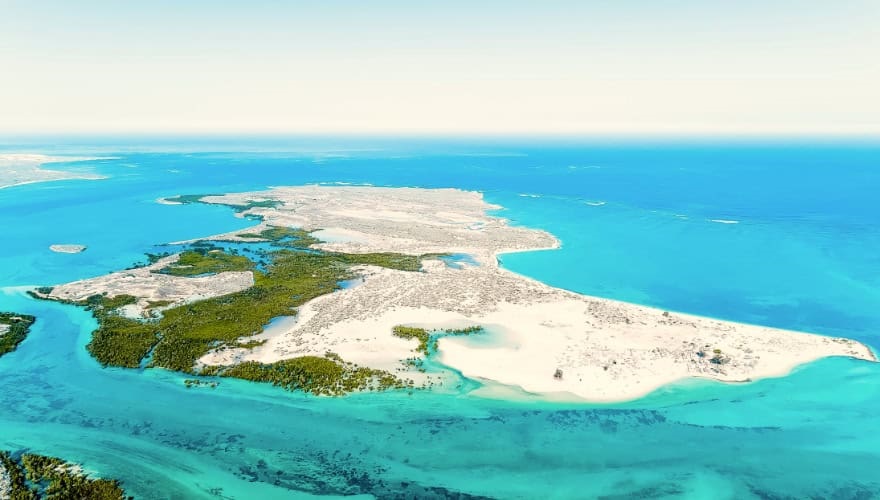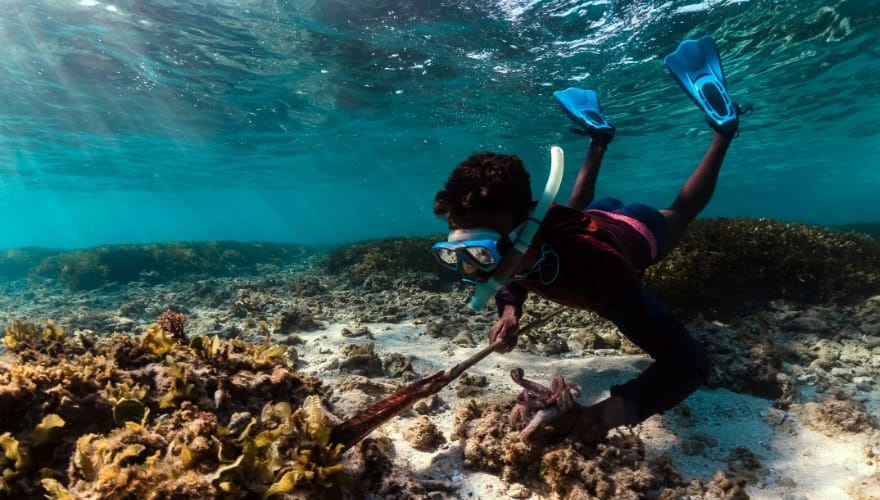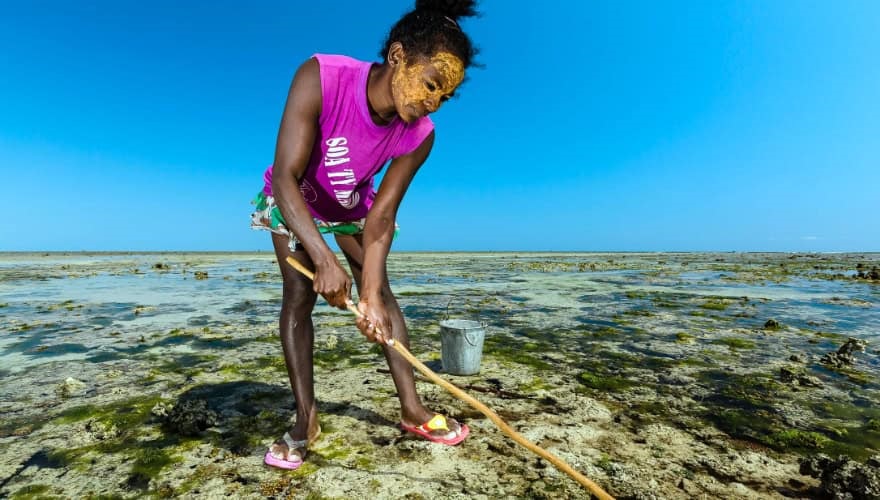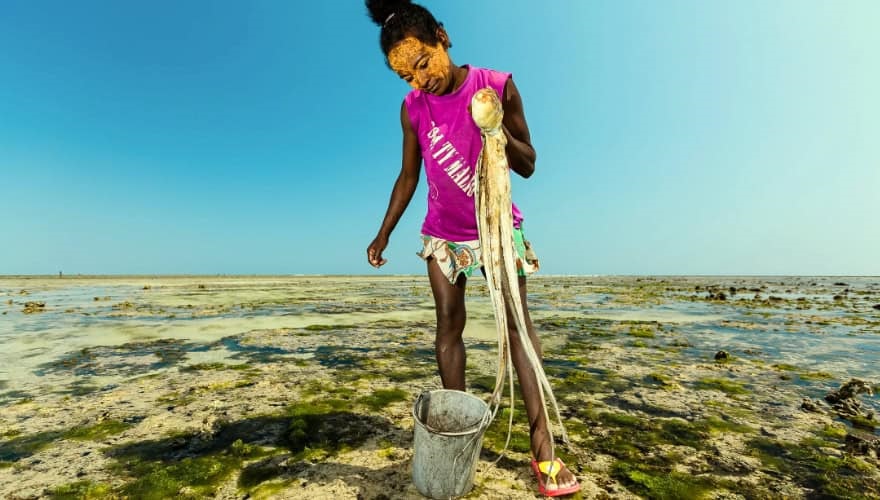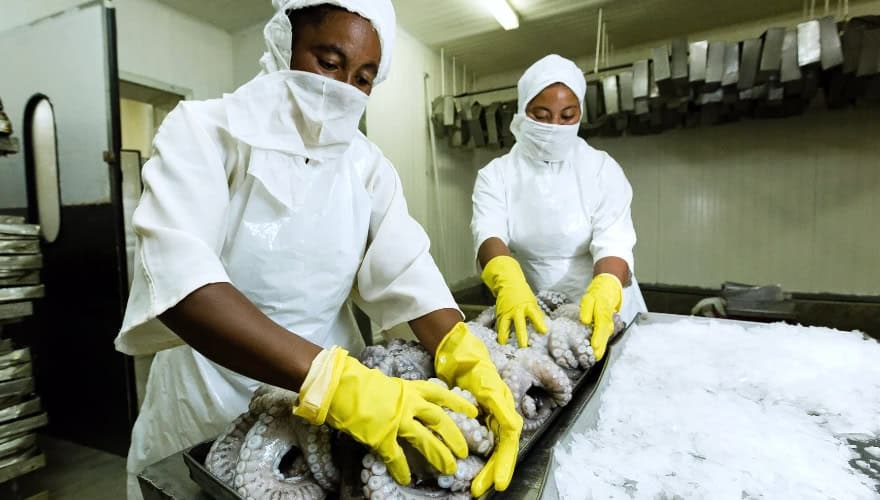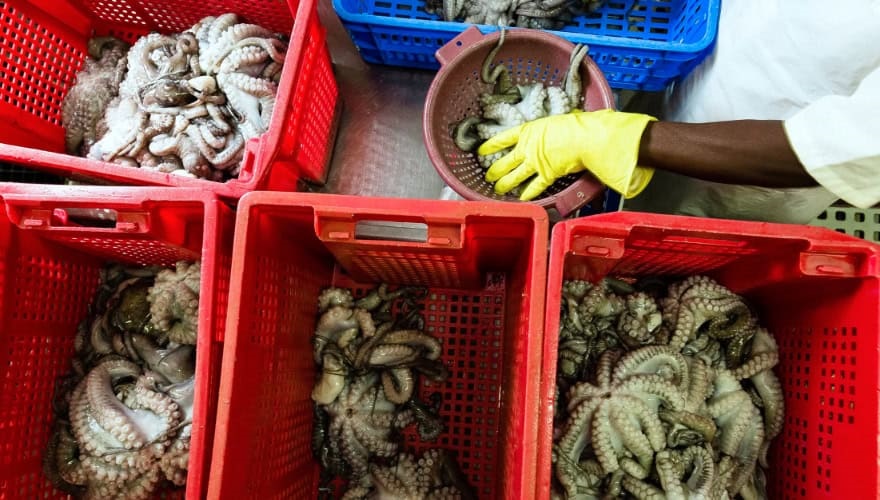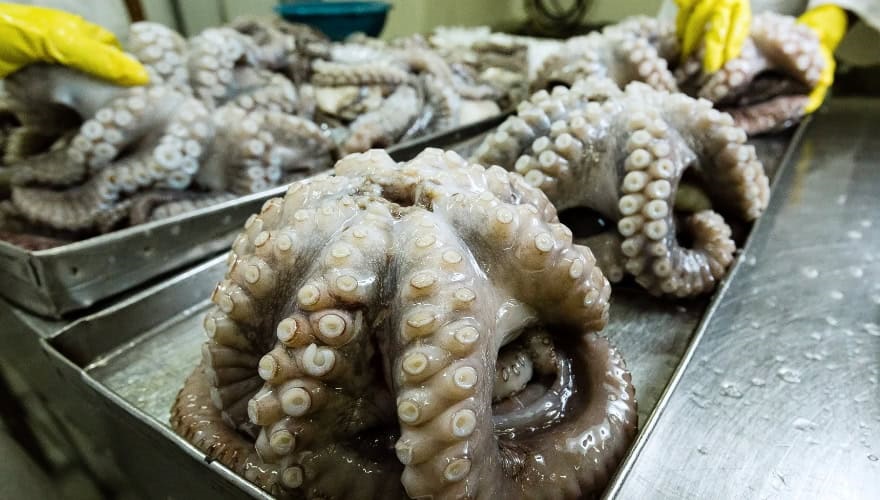Octopus is traditionally caught by fishing communities throughout the Indian Ocean where it is a valuable source of protein and income. Yet over the past decade, growing global interest in octopus products, in particular MSC-certified octopus, has created new export opportunities.
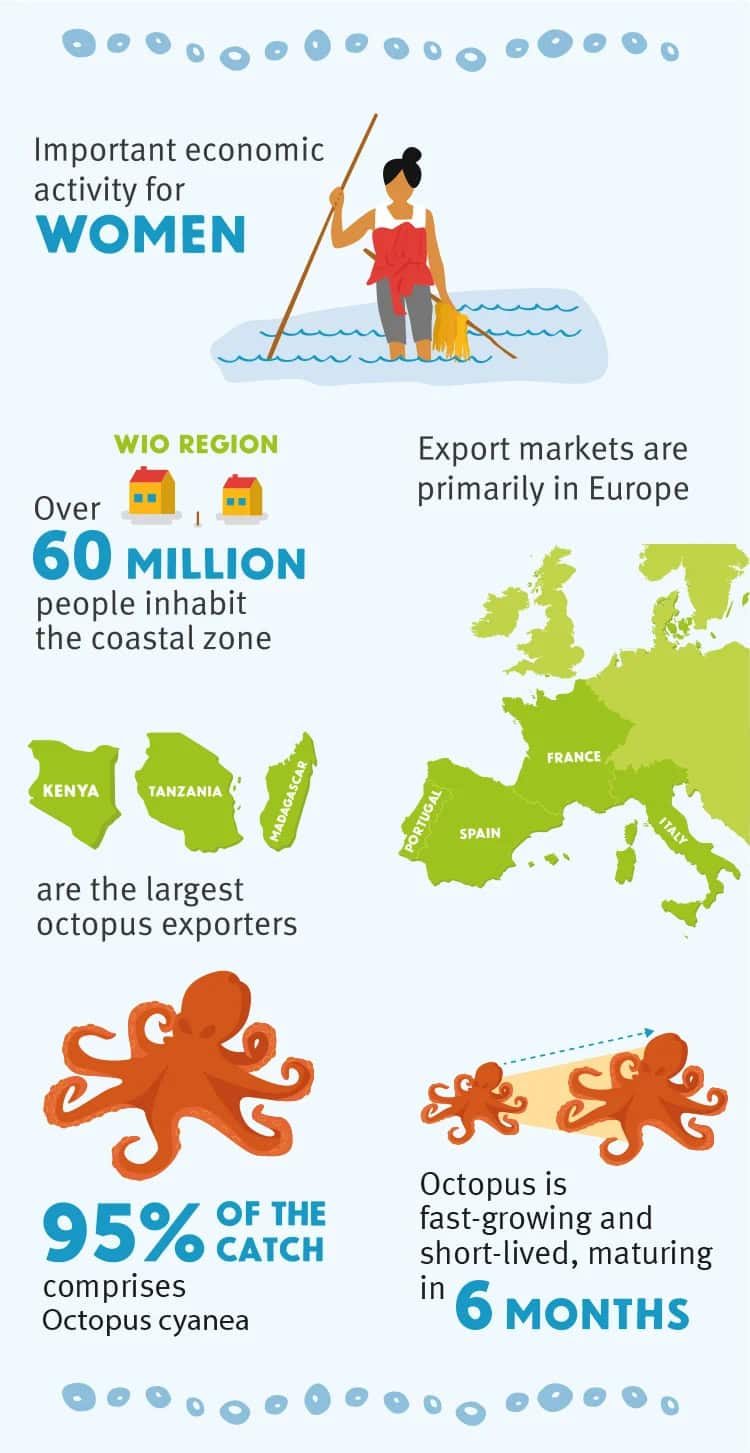
By fishing octopus sustainably, fishing communities across the Indian Ocean have the opportunity to gain access to long-term social, environmental and economic benefits.
The Southwest Indian Ocean Octopus Project, SWIOCeph, is an initiative by the Marine Stewardship Council (MSC) aimed at guiding octopus fishing communities towards more sustainable fishing practices.
SWIOCeph uses the MSC framework and tools to engage and support stakeholders and octopus fishing communities who are working towards more sustainable fishing practices.
It also fosters collaboration and knowledge exchange opportunities between the stakeholders working with the region’s octopus fisheries.
In October 2020, SWIOCeph hosted a three-day virtual symposium bringing together experts from the Marine Stewardship Council and guest speakers from the eNGO, research and commercial worlds to discuss challenges and opportunities for sustainable octopus fisheries in the region.
This story summarises key themes raised during the event with full speaker talks available to stream here.
STAGE 1: Mapping
To support octopus fisheries on their journey to sustainability, SWIOCeph follows a four-stage process.
First, information on fishing practices, stock status, landings and trade are used to MAP the octopus fisheries in the southwest Indian Ocean
region.
STAGE 2: Pre-assessments
Selected fisheries are then PRE-ASSESSED by independent assessors against the MSC’s Fisheries Standard and areas of improvement identified.
STAGE 3: Action plans
Stakeholders use the pre-assessments to develop ACTION PLANS by collaboratively identifying ways to improve fishery practices toward sustainability.
STAGE 4: Implementation
The action plans are then IMPLEMENTED by stakeholders through fishery improvement projects (FIPs).
The status of global octopus markets
Watch the full presentation on global octopus markets and sustainability opportunities for southwest Indian Ocean production by Pedro Ferreiro from the Sustainable Fisheries Partnership
Across the world, it’s estimated that 400,000 tonnes of octopus are landed each year. The majority is produced in East Asia and West Africa while Spain, Italy, Portugal, South Korea, Japan and the USA together make up the largest octopus importers.
Demand for sustainable octopus is on the rise, yet only two octopus fisheries have achieved MSC certification so far. There are a further six octopus fishery improvement projects registered on fisheryprogress.org. This gap in the market offers a promising opportunity for the Southwest Indian Ocean’s octopus fisheries if they can demonstrate the sustainability of their operations.
During his talk on the global octopus market, Pedro Ferreiro from the Sustainable Fisheries Partnership remarked ...
“There is huge potential in the market to meet the demands from the retailers or supply chain companies that are seeking octopus production with MSC certification. Right now, on a global level, there are only six octopus FIPS, together representing just 3% of global octopus production. Far more octopus fisheries could be getting the green light from major buyers if they are supported to improve and/or demonstrate the sustainability of their operations.”
Challenges in assessing octopus stocks
Watch the full presentation on the challenges of assessing octopus stocks by Ruben Roa-Ureta
Despite the clear opportunities offered by MSC certification, demonstrating the sustainability of octopus fishing is not without its challenges. The main octopus species targeted in the Southwest Indian Ocean region is the ‘day octopus’ (Octopus cyanea),
a reef-dwelling species with a rapid growth rate and a lifespan of only 12-15 months.
These life history traits, along with high variability in the number of octopus surviving to adulthood each year, make it challenging to predict octopus population size using traditional stock assessment models which operate on much longer
time scales.
According to Ruben Roa-Ureta, an expert on octopus stock assessment
“The most important message from the assessment of octopus stocks carried out, is that the data collected from these fisheries must be at very short time steps, probably daily or weekly instead of every month or year. Frequent, coordinated data collection is critical if we are to get a step closer to demonstrating the sustainable management of octopus stocks.”
Lessons learned from regional fishery improvement initiatives
Watch Stewart Norman from Capricorn Marine Environmental explain the pre-assessment process, and what the results can tell us about Southwest Indian Ocean octopus fisheries
Through SWIOCeph, octopus fisheries were pre-assessed by independent assessors against the MSC’s Fisheries Standard and areas of improvement identified.
To achieve sustainability, octopus fishers need to monitor octopus stock status and set rules for controlling catches; prevent impacts on other marine life or coral reef habitats; and develop a comprehensive fishery-specific management system.
In addition to understanding the challenges around octopus stock assessments, the six pre-assessments have enabled stakeholders to better understand where other information gaps might lie. For example:
- The harvest strategy: information about the combination of monitoring, stock assessment, harvest control rules and management action involved in ensuring octopus stocks are harvested at a sustainable level.
- Secondary species: evidence to demonstrate the impacts of the fishery on non-target species (for example, sea cucumbers).
- Endangered threatened and protected species: the impacts of the fishery on vulnerable species within the wider ecosystem.
- The fishery management system: the fishery’s management plans and processes including compliance and enforcement.
Watch an overview of the octopus fishery improvement project in southwest Madagascar by Lovasoa Augustave from Blue Ventures
Sharing on the ground experiences from the octopus FIP in Southwest Madagascar, Lovasoa Augustave, Fisheries Programme Coordinator at Blue Ventures Conservation, explained that a successful FIP requires buy-in from all relevant stakeholders.
“The concept of a FIP is not very well understood by all stakeholders...If you want to start a FIP you have to put effort into stakeholder consultation to ensure everyone’s engagement and commitment.”
Reef closures and co-management opportunities
Watch Lorna Slade from the Mwambao Coastal Community Network explain the fisheries management opportunities catalysed by reef closures in Zanzibar
Short-term reef closures, in which fishers temporarily refrain from harvesting in specific areas of a coral reef, are used extensively across the Southwest Indian Ocean as a community-based resource management tool.
Evidence from octopus reef fisheries in the Western Indian Ocean suggests that short-term closures are particularly effective in the management of the day octopus, resulting in much bigger octopus and more plentiful catches after only short periods of closure.1
In addition to their biological effectiveness, such closures can play an important role in engaging fishers in collaborating community-led fisheries management.
“Successful operation of reef closures for octopus can pave the way for wider marine resources management planning” explained Lorna Slade, Mwambao Coastal Community Network”
For example, the widespread adoption of community octopus closures in Velondriake, Southwest Madagascar has prompted the community to establish a far larger locally managed marine area, to form a fisheries governance committee and to ban destructive fishing
methods in the region. This pattern reflects experiences with periodic closures in the Pacific Ocean.
1. Oliver et al. 2015 https://journals.plos.org/plosone/article?id=10.1371/journal.pone.0129075#sec024
Supporting stakeholder engagement
SWIOCeph itself was established in 2017 as a collaborative initiative between the MSC, conservation group Blue Ventures, the German Corporation for International Cooperation (GiZ) (Deutsche Gesellschaft für Internationale Zusammenarbeit), the African Union Interafrican Bureau for Animal Resources (AU-IBAR) and WWF-Sweden. WWF-Sweden provides funding for ongoing stakeholder engagement and collaboration work.
Collaboration between governments, regional management organisations, supply chain partners, fisheries, and NGOs plays a vital role in SWIOCeph. By bringing together supply and demand, the project aims to incentivise sustainable fishing practices.
This symposium gathered 88 attendees from 18 countries to discuss progress towards sustainable octopus fisheries across the Southwest Indian Ocean.
For further information about how you can get involved in SWIOCeph, visit www.msc.org/swioceph or to watch all symposium presentations in full please visit our YouTube channel.


